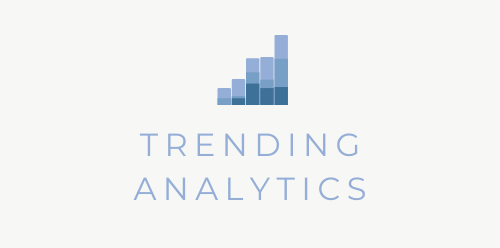Episode 38: How to Responsibly and Ethically Communicate Data
Explore this podcast episode on responsible data communication, where we delve into best practices for data professionals to prioritize ethical considerations in their data handling and sharing. Discover how to ensure transparency, accuracy, and data literacy, contributing to a more responsible decision-making process.
You can also listen on Apple Podcasts, Google Podcasts, and Spotify.
What You’ll Learn in this Episode
- Why is this important?
- Emphasizing the need to be transparent about data sources, limitations, and potential biases.
- Discouraging misrepresentation of data and promoting objective and accurate presentation.
- Encouraging data professionals to educate their audience about ethical data practices and foster critical thinking.
Get in Touch with Hana
Let me know what you think of the episode, you can message at hana@trending-analytics.com or on Instagram @hanalytx.
If you are looking for podcast updates and want additional tips on how to visualize and present data sent straight to your inbox, then make sure to subscribe to my weekly data letters here.
When you hit that subscribe button, I’ll be sliding into your inbox every Wednesday with an email.
Love the show? Why not leave a review?
If you loved this episode of the Art of Communicating Data Podcast, why not leave a review on Apple Podcasts and Spotify?
It only takes 2 minutes and provides me with invaluable insight as to what the listeners think.
If you enjoyed this episode, check out this episode where we discuss 5 dashboard mistakes to avoid.
Episode Transcript
Generated automatically – there may be some errors.
Data Ethics and Responsible Data Communication Best Practices
Data Ethics and Responsible Data Communication Best Practices
[00:00:00] Hana: Today we’re gonna explore the topic of data ethics and responsible data communication. . Considering the important role data can play in decision making, it’s really important for data professionals like ourselves to prioritize ethical considerations when we are communicating.
[00:00:17] So I’m gonna just share some best practices and this will help you ensure that you are communicating responsibly and ethically. This is in no particular order. The first point is to respect data privacy and security.
[00:00:32] You always wanna make sure that you are following data privacy regulations and you’re ensuring that any sensitive data is handled securely. You want to avoid sharing or disclosing data that could compromise privacy or security. Privacy and security laws are changing constantly, so you wanna make sure that you are following the latest laws, and so is your company.
[00:00:58] Sometimes even within the same company or team, you may not be allowed to share data with other people unless absolutely needed, so just be aware of that. You also wanna be transparent about the data sources and any limitations that they have. So clearly communicate what sources you’re using in your analysis and highlight any limitations or potential biases that may be associated with the data.
[00:01:22] Third, you wanna avoid misrepresenting the data. So this is obvious, but I know some data professionals, unfortunately, have been put in a position where they’re asked to do this, but it’s important that you do not manipulate or distort the data in order to fit a specific narrative or agenda.
[00:01:41] I know in general, data professionals don’t have a specific narrative or agenda is usually coming from outside and above. But it’s important that you do not do this. Present data objectively and accurately. Avoid any misrepresentation, even if your audience wants to be misled. Don’t do it. This can be an opportunity for increasing data literacy. You can educate your audience members about the data and what is allowed for you to do and not to do. Sometimes people think it’s actually okay to cherry-pick the data, but you can explain why that’s actually unethical.
[00:02:17] You wanna encourage them to be critical thinkers and provide them guidance on how to interpret data accurately in order to avoid misinterpretation or miscommunication.
[00:02:27] Finally, you want to speak up, but tactfully and professionally when someone is misinterpreting or miscommunicating the data or asking you to do that. Sometimes this is done unintentionally, so try to give the person the benefit of the doubt while still addressing the ethics behind this.
[00:02:43] By following these best practices, data professionals can ensure responsible and ethical communication and help contribute to a more informed and responsible decision making process.
[00:02:54] So some action items for you is to review your current data communication practices and see if they align with ethical principles and best practices that we talked about. You want to make necessary adjustments and then I’ll also recommend that you educate yourself and your team on data privacy regulations and ensure that compliance is happening across your entire team.
[00:03:15] I would also recommend that you promote data literacy amongst your audience members in your organization or company by providing educational resources and guidance on working with data ethically.
[00:03:25] That’s all for today. Let me know if you have any questions about this. I know this is a topic that can be delved into further if needed, but hopefully I’ve covered the main points to help you get started.
